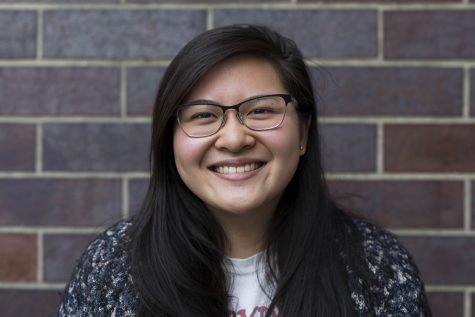Contouring and the Destructiveness of Makeup Culture

April 22, 2016
A quick skim of Instagram’s explorations page gives the casual observer a glimpse into the world of makeup: about 1.6 million posts have been made with the #contour tag, and an online community has sprung up around the do-it-yourself makeup industry. This ordinarily would be a good thing, since the cosmetics industry has long profited from the insecurities of women, and creating a platform in which women have the autonomy to decide whether or not they want to use makeup gives them much more agency as a whole. But as of late, these communities have taken it a step too far, in some cases advocating for ridiculously elaborate makeup rituals that ultimately serve little to no purpose.
Now this is not to say that the act of using makeup or abstaining from it is an inherently political act — it is what one makes of it, like any other tool of self-expression. Some women find makeup to be empowering, and that wearing makeup helps to build self-confidence and self-esteem. Others think of makeup as a form of art, akin to the elegant shapes and patterns fashion house models adorn on their faces as they walk down the runway. Others simply don’t choose to wear it. All of these perceptions are totally fine as long as they are used in a healthy way to engage with notions of beauty that are rooted in self-improvement and satisfaction, and not in artificially imposed norms and social anxiety.
But sometimes these tend to go a little too far when reinforced over and over again by social media. Take, for example, neck contouring — where one applies makeup to the back of the neck in order to make it appear slimmer and longer. Most people generally recognize the absurdity of such a concept, but that doesn’t stop the fact that the audiences for these tutorials keeps growing. There are other techniques that are equally ridiculous — ab contouring to fake a six pack and leg contouring to make the entire leg slimmer, to name a few. It’s hard to find justification for these kinds of extreme full-body rituals, and the proliferation of these techniques online are especially troubling.
Considering how much social media plays into the relative fears and insecurities of its users — young women in particular — it just doesn’t seem right to be constantly pushing these excessive makeup rituals onto them. Makeup tutorials can be extremely helpful when prepping for a big night out or an important event. But many of these tutorials and bloggers frame full-body makeup as an everyday routine without much consideration of consequences. By all means, people are free to continue creating makeup tutorials, but they need to especially stress to their young audience that makeup should be used to emphasize inner beauty, not to cover up internalized fear.
Opinions expressed on the editorial pages are not necessarily those of WSN, and our publication of opinions is not an endorsement of them.
Email Emily Fong at [email protected].

























































































































































A Baseball Lover. • May 5, 2016 at 7:47 pm
Just because you are bad at make up doesn’t mean all of us our. Stop shaming me for my choices! I like to contour my feet please be kind!
Ray • Apr 23, 2016 at 7:45 pm
Worth mentioning: http://www.glamour.com/story/kim-kardashian-contours-her-butt-because-of-course